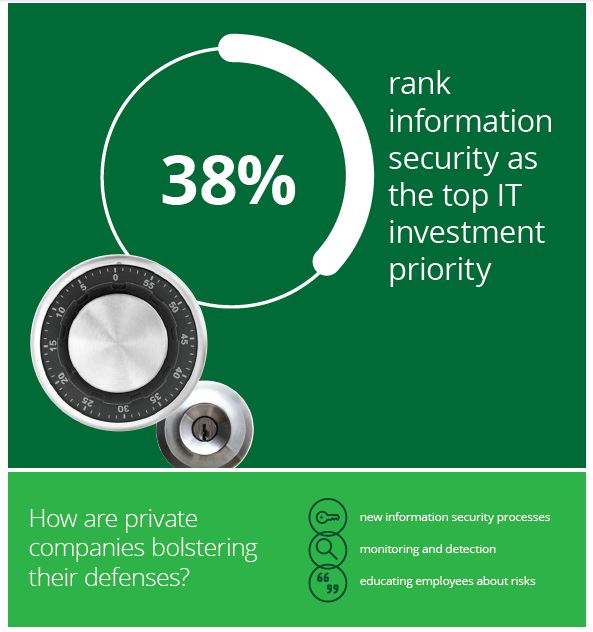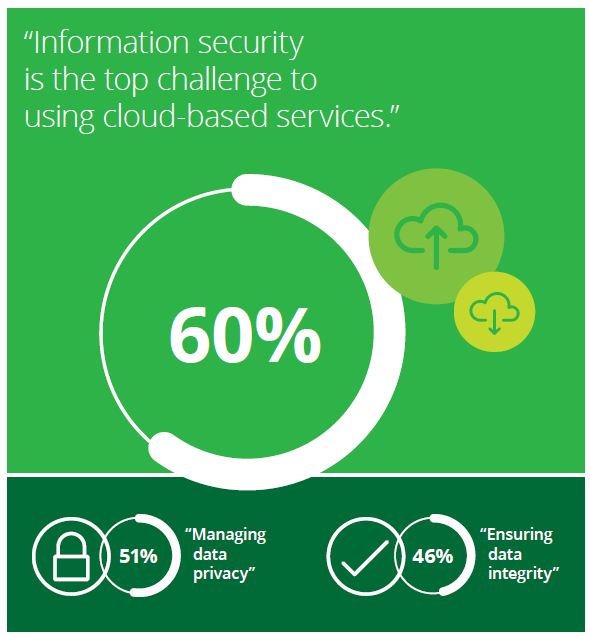Deloitte, in Its Sixth Annual Report, Explores Technology Trends That Drive Mid-Market and Private Companies in the Us Economy
In a recent survey of mid-market companies, conducted by OnResearch, Deloitte examined trends that would determine how technology influences business decisions in this market. Titled ‘Technology in the mid-market: Embracing technology’, the survey tackles the talent dimensions of IT investments.
This is the sixth annual report by Deloitte Private, for which the company surveyed 500 executives from mid-market companies with annual revenues ranging from $100 million to a little more than $1 billion. While half of the respondents were C-suite executives, the remaining executives held other management roles.
“What we found is that in many cases, technology is augmenting workers rather than rendering them obsolete. The nature of work is shifting from low-value, routine tasks to higher-order analysis and invention. And through this process, private companies are enjoying myriad benefits, from increased productivity to better customer engagement to forming whole new business lines,” write Roger Nanney, National Managing Partner, Deloitte Private; and Doug Beaudoin, Deloitte Private Consulting Leader.
The survey found that rather than being left out, employees are sharing in technology’s bounty in a number of ways:
- New jobs: Nearly half of the survey companies report plans to hire more than they did before implementing new technologies, and only a quarter think they will require fewer people.
- New skills: The private companies say reskilling employees has the greatest impact on their efforts to technologically augment their workforce.
- New flexibility: Companies plan to increasingly rely on “gig workers”— contract-based or non-full-time, flex employees—to help meet their strategic goals for technology.
Priorities are straight – Data security
The survey reveals that protecting data and systems remains top of mind. Information security ranks as the top IT investment priority, at 38 percent, and it’s expected to have the biggest impact on business over the next 12 months. Private companies are doing a number of things to bolster their defenses, from implementing new information security processes to preventing threats through monitoring and detection, to educating employees about risks.
More than half of respondents i.e. 55 percent ranked the reduction of operational costs as one of the top three most significant impacts of digital disruption. Customer pursuits continue to drive analytics investments—almost 60 percent of respondents say they are using analytics for sales and customer management activities. And the share of respondents who say they are using analytics for marketing is 48 percent.

Machine learning, automation, and predictive analysis
Around 57 percent respondents said that they are using machine learning for predictive analysis of business outcomes, while 41 percent use it to read and encode human communication for data processing. However, the use of these tech tools is flat or has decreased across several business dimensions, survey responses show.
But humans still have to manage the technology. Two-thirds of respondents say they are focusing their use of robotic process automation (RPA) on high-volume, labor-intensive tasks. Notably, there was a significant decline in the share of the respondents using machine intelligence to read and encode human communication, an indication of the ongoing challenges of coding for difficult and nuanced human communication.
The survey report highlights a few ways CFOs can rise to the challenge and help their companies convert technology investments into a competitive advantage:
- Invest in workforce analytics technologies that require people to take action on findings.
- Relentlessly review cloud integration, security, and customization when investing in IT infrastructure.
- Recognize that cognitive technologies involve far more than automating work, and maintain an open mind about investments that can ultimately transform the business.
Also Read: 60% of Customer Success Teams Are Unaware of Critical Client Issues
High on Cloud
Back-office investments such as cloud innovation and cloud integration continue to be areas that will have a significant impact on their companies in the near future. The respondents listed cloud applications as the second most influential technology affecting their workforce and the third most influential when it comes to their customers.
Almost 60 percent of the respondents mentioned that information security is now the top challenge the executives cite in using cloud-based services while managing data privacy (51 percent) and ensuring data integrity (46 percent) also rank high.
The Internet of Things (IoT) makes one out of every five executive’s list of tech-related trends expected to have a significant impact on their business over the next 12 months. More of the respondents see IoT technologies impacting their customers (40 percent) than their employees (36 percent).

Deloitte provides industry-leading audit, consulting, tax and advisory services to many of the world’s most admired brands, including more than 85 percent of the Fortune 500 and more than 6,000 private and middle market companies.
Recommended Read: OneTrust Leads Global Privacy Management Software Market: Ovum Report











